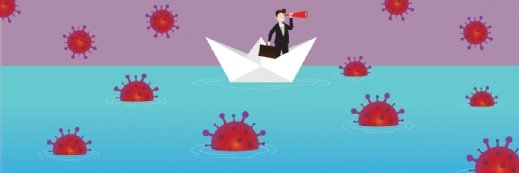
Getty Images
Natural Language Processing Can Improve Bipolar Disorder Care
A new study highlights how natural language processing methods can be used to enhance care for people with bipolar disorder.
A scoping review published in JMIR Mental Health explored how natural language processing (NLP) methods have been used by researchers to better understand bipolar disorder and identified opportunities for further NLP use.
Researchers gathered 35 studies that described the application of an NLP method to the study of bipolar disorder. They used narrative synthesis to map the literature according to four research questions. These questions related to trends that could be observed, NLP methods that have been used, the clinical and practical applications reported, and the ethical considerations present in the literature.
In terms of trends, researchers noted that there had been an increase in the publication of articles analyzing NLP and bipolar disorder, from one study in 2004 to five in 2020. Since 2015, interest in the topic has peaked and remained relatively constant. The primary objectives of the studies could be broken down into four categories: prediction and classification, characterization of the language of bipolar disorder, use of EHRs to measure health outcomes, and use of EHRs for phenotyping. The most prominent objective was prediction and classification related to bipolar disorder, and the second most prevalent was to characterize the language of bipolar disorder.
The articles analyzed in this study indicated multiple clinical and practical implications of the research. One of the most common applications suggested was that using NLP methods with social media data could aid in early detection, clinical evaluation, and suicide prevention, along with complementing existing methods to address these outcomes. The use of NLP and EHRs could also potentially lead to the creation of predictive diagnostic algorithms for bipolar disorder.
Another application of the research is that the findings could be used to flag worsening mental health and create urgency markers for targeted interventions. The data could also be used to help distribute treatment to traditionally hard-to-reach populations via telemental care. Some of the studies indicated that social media itself could be used to reduce social isolation, improve coping skills, and enhance patient knowledge about their condition.
However, applications of NLP methods related to bipolar disorder, particularly those that utilize social media data, require ethical considerations to protect patient privacy, the researchers pointed out. Sixty percent of the studies they synthesized referenced ethical considerations of some kind, while the other 40 percent didn’t reference any at all. Prior to 2016, nearly half of the papers included limited discussions of ethics. Ethical considerations became more common in papers published from 2017 onward, and recent articles were more likely to include detailed discussions of ethical decision-making and study design, along with considerations of positive and negative societal impacts that could stem from the research.
The researchers concluded that the benefits of NLP, especially those used in conjunction with bipolar disorder research, indicated that language analysis could help aid the provision of care for those with the condition. Using NLP to investigate risk-taking, the representation of gender in bipolar disorder populations online, web-based services, and social and occupational functioning could benefit the medical community and bipolar disorder patients.
However, any research conducted using NLP to study bipolar disorder should consider ethical artificial intelligence principles to minimize risk and protect participant data and privacy, the study authors noted.







